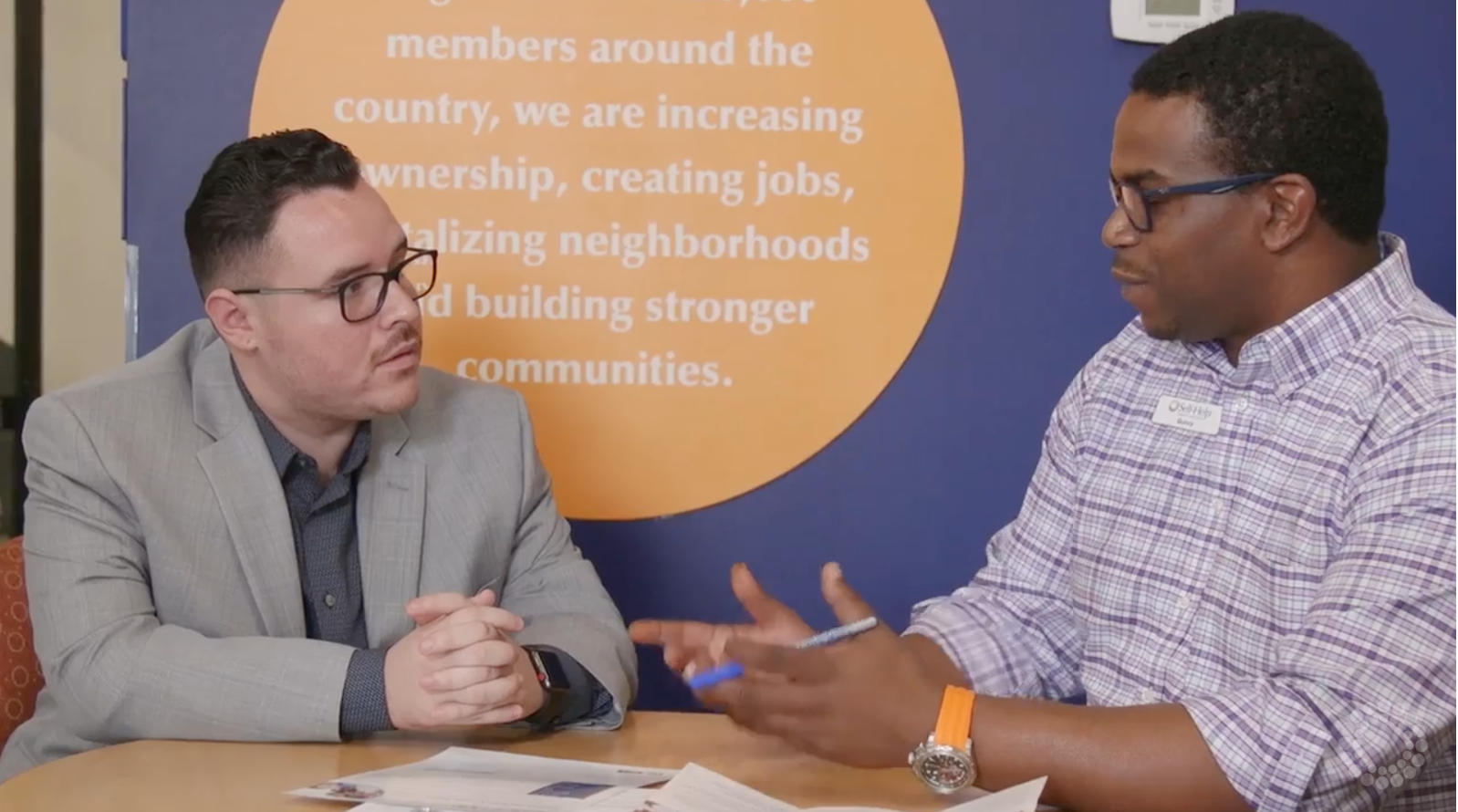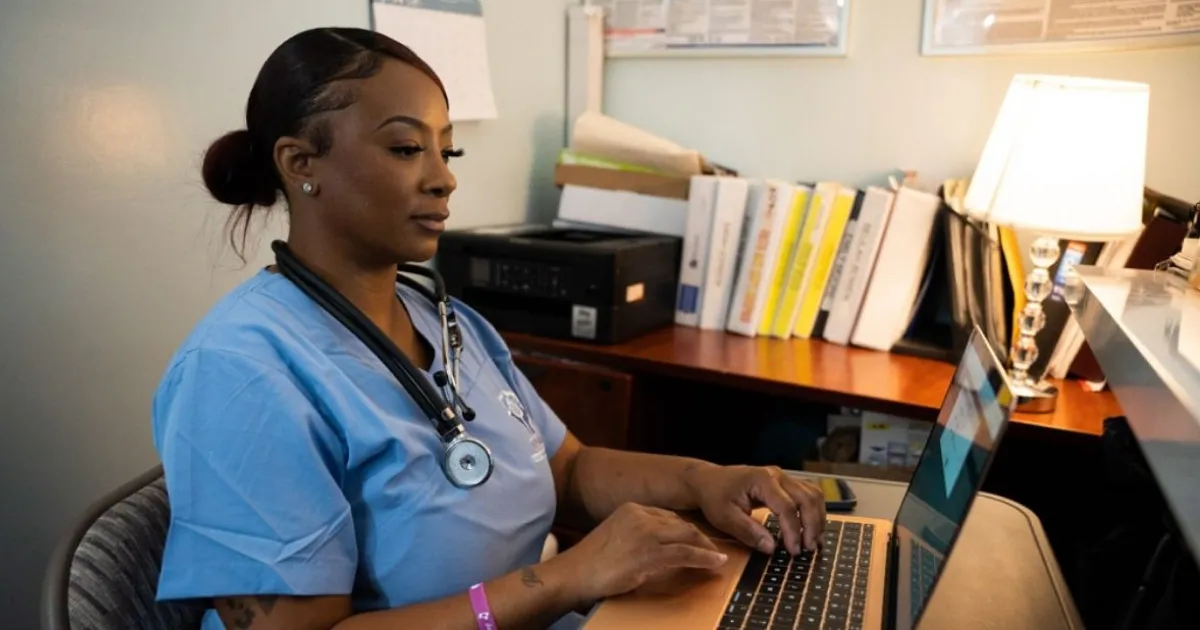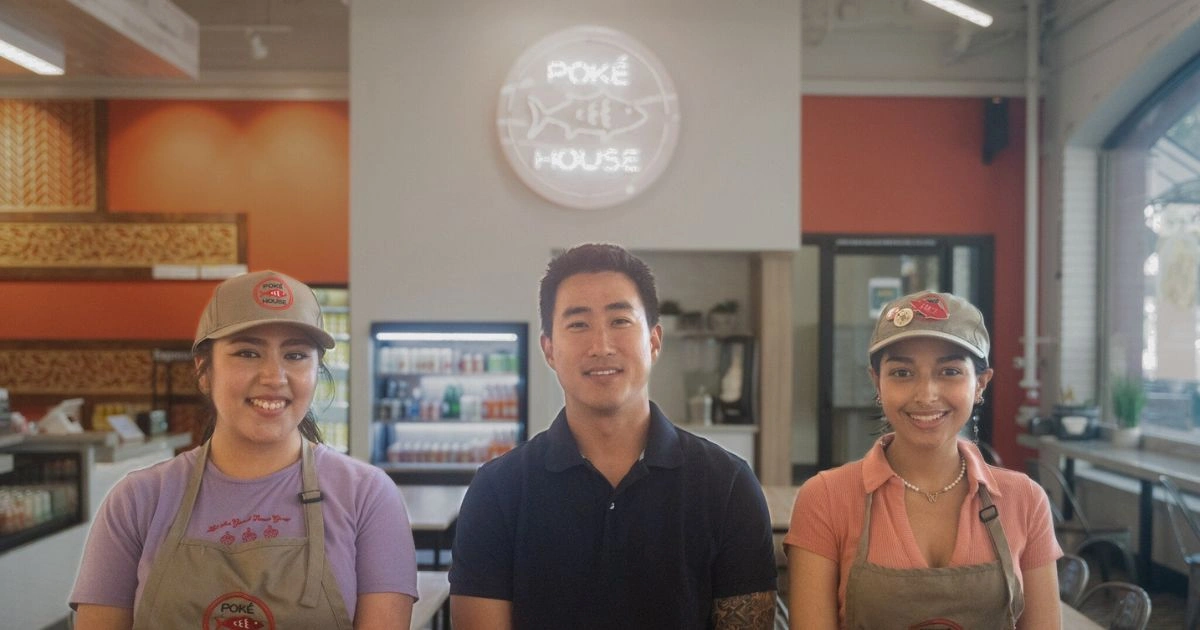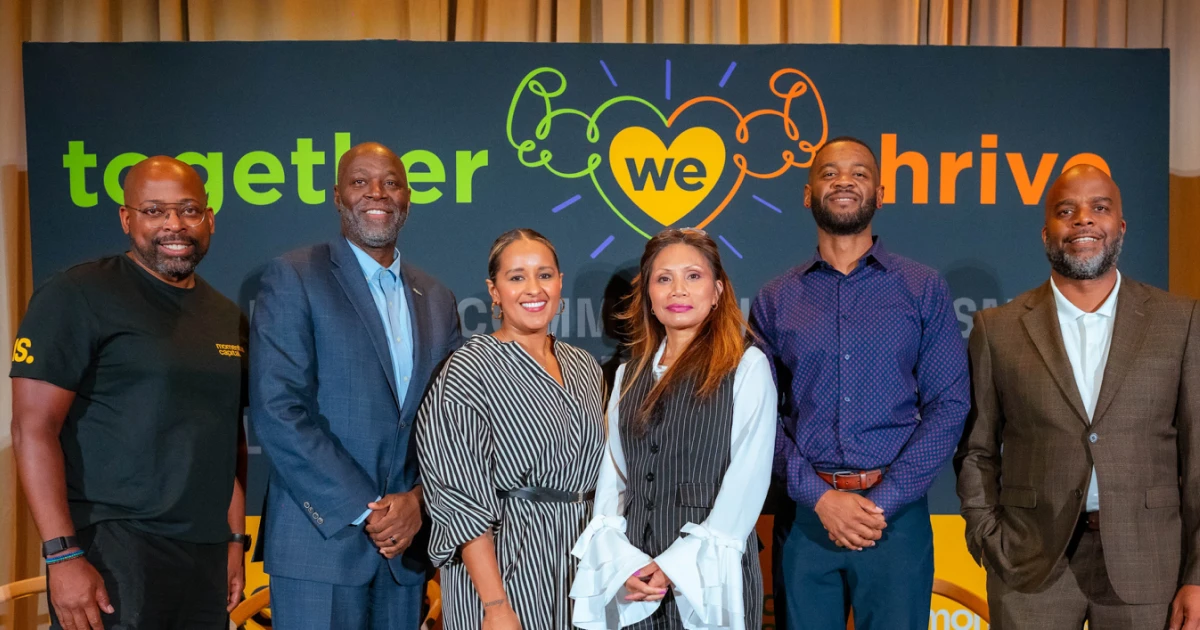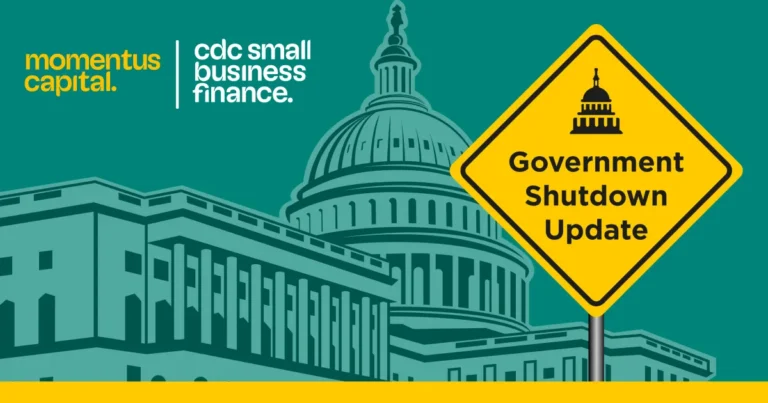San Diego resident Salvador Terrones (left), Self-Help Federal Credit Union member, has a discussion with a Self-Help employee at its City Heights office. Terrones overcame adversity and recently found ways to build strong credit with the help of the financial institution.
At CDC Small Business Finance, we believe in the far-reaching impact of collaboration not only within our own organization but also with those who share a common goal of helping underserved communities attain success and prosperity.
To highlight the amazing work being accomplished in the communities we serve, we’ll routinely feature outside organizations, companies and volunteer groups that make a difference every day.
Today, we’re spotlighting Self-Help Federal Credit Union, a financial institution that fills the gap in the financial market, serving those not served by traditional banks. Self-Help Federal, which has a branch in San Diego’s City Heights neighborhood and one in Oakland, makes opening and maintaining checking and savings accounts accessible to working families, minorities, immigrants and other groups. They also offer a range of personal, auto and home loans, financial-literacy courses and interpreters, among other services.
With 27 branches, Self-Help Federal recently marked its tenth year as a chartered credit union. They also recently reached a milestone of more than $1 billion in assets. To put this success into perspective, consider that the average U.S. community bank’s assets is $280 million, according to the FDIC.
Kim Buttemer, the chief operating officer at CDC Small Business Finance, has seen first-hand the high-impact work at Self-Help. She serves as a local advisory board member for the San Diego credit union, which is also categorized as a CDFI, or community development financial institution.
“They’re just phenomenal,” Buttemer said. “Their success is such a great example of a long-term company that has built itself from its mission of serving their communities.”
Dive into Self-Help’s grassroots backstory
To understand the credit union’s mission, you should become acquainted with its parent company — the Center for Community Self-Help. Established in 1980, its roots trace back to rural North Carolina, where they helped farmers obtain ownership of local mills facing closure. This hard-won victory helped preserve that area’s economy and set the foundation for helping the underserved.
Over the years, this organization has supported several worthwhile causes including:
- Issued affordable mortgages to families unable to obtain conventional financing.
- Redeveloped and invested in commercial space, offering offices to nonprofits and small businesses at reasonable rents.
- Played a key role in passing a law in North Carolina to fight predatory lending.
Self-Help’s expansion plan to serve ‘unbanked’
Self-Help opened a new chapter in its organization’s history in 2008, when it received its Federal Credit Union charter on the West Coast. This strategic move kicked off its eventual expansion plan throughout California, the Greater Chicago area and Wisconsin, to help meet growing needs of those communities.
A large share of their new locations have been a result of mergers and acquisitions of existing credit unions, which helped maintain the presence of a reliable financial institution in areas that most needed one.
Another key part of their expansion strategy centers on opening branches in low- to-moderate income areas. These are neighborhoods where predatory lenders are plentiful and more mainstream financial institutions are largely absent.
That’s how San Diego’s City Heights branch came to be, said Micheline Savarin, Self-Help’s Director of Marketing and Communications.
City Heights is among the “areas where you see more check-cashing and payday lender locations who charge exorbitant rates and fees,” Savarin said.
Asking ‘unbanked’: ‘How do you cash your check?’
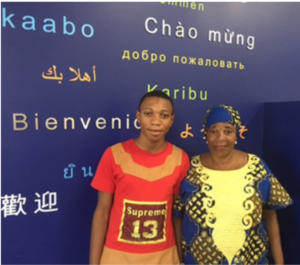
At the San Diego branch, which recently marked its first year in operation, you’ll see an eclectic clientele. Many are working-class families, immigrants or minorities, speaking a total of 30 different languages, said Branch Manager Elaine Holman.
To serve them, Self-Help Federal offers financial-literacy workshops. Many of their customers – known as members – have never had checking or savings accounts. In their place, these members have turned to payday lenders, check-cashing stores, or money-order issuers as their financial network. That combination can prove costly and inconvenient.
“Education is also part of this,” Holman said. “With clients, we first ask them, ‘How do you cash your check?’ Some spend money on check-cashing fees, and we explain to them that money can go to your household instead.”
Self-Help Federal also hits home the importance of building credit in the U.S. and the significance of a FICO, or personal credit score.
“We can’t make assumptions about their financial knowledge,” added Holman, who also serves as the Treasurer of the City Heights Business Association.
The Self-Help organization offers anyone who wants to deposit savings, money market or CD proceeds a market-rate return. In addition to that, depositors know their decision to become a credit-union member allows Self Help to leverage their investment to serve low-income immigrants and populations.
Credit unions typically refer to account holders as members since members are effectively the shareholder. That’s different from traditionals banks that have ownership interests and where account holders are simply clients.
“It’s nice to think that you can deposit your money and it is insured – and it is working behind the scenes for needy populations,” said Buttemer, of CDC.
How Self-Help reached the 10-year milestone
Savarin acknowledges that some of Self-Help’s decisions and investments may not yield an immediate profit. As a mission-driven financial institution, “what’s very important is the financial stability and trust of our membership,” she said.
After opening and maintaining a checking account for a few years, the client may return for a home or auto loan out of loyalty to the Self-Help brand, according to Savarin. At the end of the day, what matters is aligning actions with their mission of helping the unbanked and underserved.
“We couldn’t have done it without our members’, funders’ and partners’ support,” said Savarin, of hitting their 10-year mark.
Buttemer, CDC’s chief operating officer, said Self-Help has CDC’s full support and that she’s especially excited to see its City Heights branch continue to evolve.
“It’s important for CDC to support organizations like Self-Help to ensure CDC is staying relevant in the mission-based work we are doing in our communities,” she added. “We need to be out in those communities with other stakeholders and serving the target markets.”
More on Self Help Federal Credit Union: Self-Help Federal Credit Union was chartered in 2008 to build a network of branches that serve working families and underserved communities. With 17 branches in California, 9 branches in Illinois and 1 branch in Wisconsin, approximately $1.1 billion in assets, and serving more than 79,000 members, Self-Help Federal is one of the fastest-growing low-income designated credit unions in the country.
It is part of the national Self-Help family of non-profit organizations whose collective mission is to create and protect ownership and economic opportunity for all. For 38 years, the Center for Community Self-Help and its affiliates have provided $7.9 billion in financing to help over 146,000 low-wealth borrowers buy homes, start and build businesses, and strengthen community resources. For more information, go to www.self-helpfcu.org and www.self-help.org.
As a non-profit organization, CDC Small Business Finance’s mission is to support those who face the greatest obstacles in securing capital: women, minority and military veterans.
Are you trying to launch or grow your business in California, Arizona or Nevada? Our loan experts can match you with a financing plan that best suits you. Let’s talk! Get in touch with us at loaninfo@cdcloans.com or (619) 243-8667.
In case you missed it:
